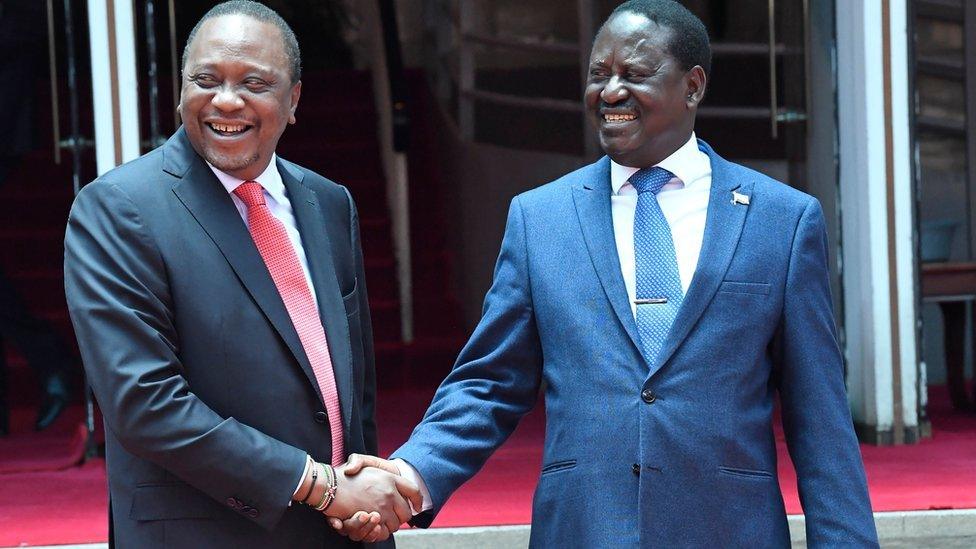Letter from Africa: Complaining about colonialism makes us the victims
- Published
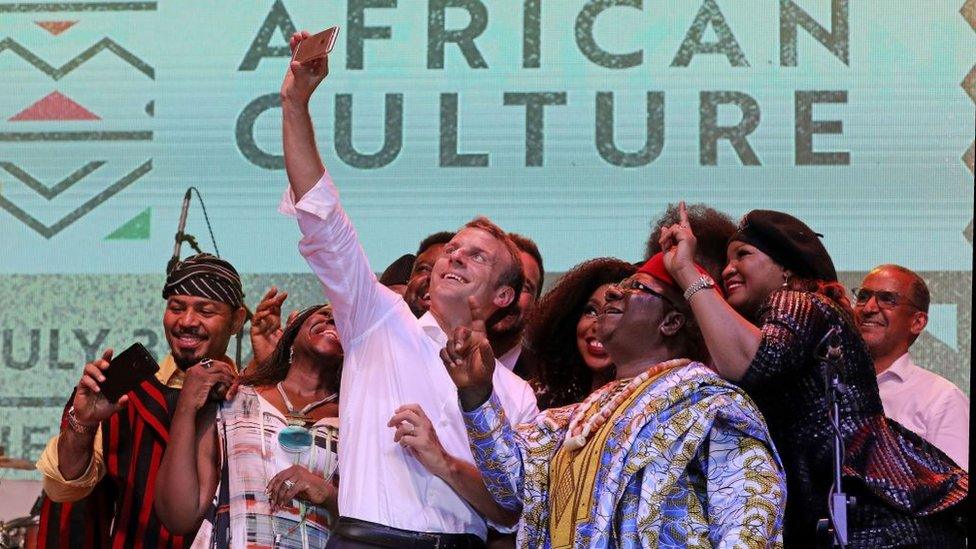
French President Emmanuel Macron said young Nigerians were free from the effects of colonialism
In our series of letters from Africa, Nigerian writer and novelist Adaobi Tricia Nwaubani looks at the backlash over a statement from France's president in which he was accused of diminishing the effects of colonialism.
Emmanuel Macron's remarks have provided Africans with yet another one of those attack sessions that we so thoroughly enjoy - an opportunity to reprimand our former colonial rulers who once paraded themselves as superior to us.
"60% percent of the Nigerian population is aged under 25," the French leader tweeted during his trip to Nigeria.
"That's 60% of the population which, like me, did not witness colonisation. We are the new generation. We are going to dispel prejudice by rebuilding a new future through culture."
The criticisms of Mr Macron's remark were swift and plenty. They varied from four-letter words to accusations of encouraging Africa's youth to sweep the crimes of colonialism under the carpet.
Many responders listed the impact of colonialism in Africa, particularly on the countries' economies, side-effects of which are currently suffered by those who were not born at the time of the original atrocities.
Allow X content?
This article contains content provided by X. We ask for your permission before anything is loaded, as they may be using cookies and other technologies. You may want to read X’s cookie policy, external and privacy policy, external before accepting. To view this content choose ‘accept and continue’.
Allow X content?
This article contains content provided by X. We ask for your permission before anything is loaded, as they may be using cookies and other technologies. You may want to read X’s cookie policy, external and privacy policy, external before accepting. To view this content choose ‘accept and continue’.
So how has colonialism affected me?
I was born almost 20 years after Britain officially handed over my country, Nigeria, to its people.
The one enduring effect that I find most bothersome is the way our former colonial rulers still loom large in our peoples' minds, shaping the greater part of our self-image.
What "the white people" think and speak of us continues to mean more to many Africans than what we believe about ourselves.

Adaobi Tricia Nwaubani:

"Any opportunity to insult, bully, or deride our former colonial rulers is a delight for us"

The late Chinua Achebe, author of Things Fall Apart - the most widely read work of African literature - stated clearly that his highly acclaimed book was born out of his indignation at the distorted portrayal of Africans in European writings.
He wanted to show that Africans were definitely not primitives; that, even before the white people came, we were members of a thriving society that had its own laws and government.
Achebe has not been alone in this gallant venture.
Before and beyond him, other noble Africans have taken it upon themselves to show the world that their people are not second-class beings.
Yet, over half a century after Achebe clearly captivated the world, after Wole Soyinka, after Flora Nwapa, after Miriam Makeba, after Desmond Tutu, after Nelson Mandela, after Iman, after Kofi Annan... after all these internationally acclaimed men and women of purely African origin, Africans still see the need to prove that we are not the brainless chimps that anyone might have thought us to be.
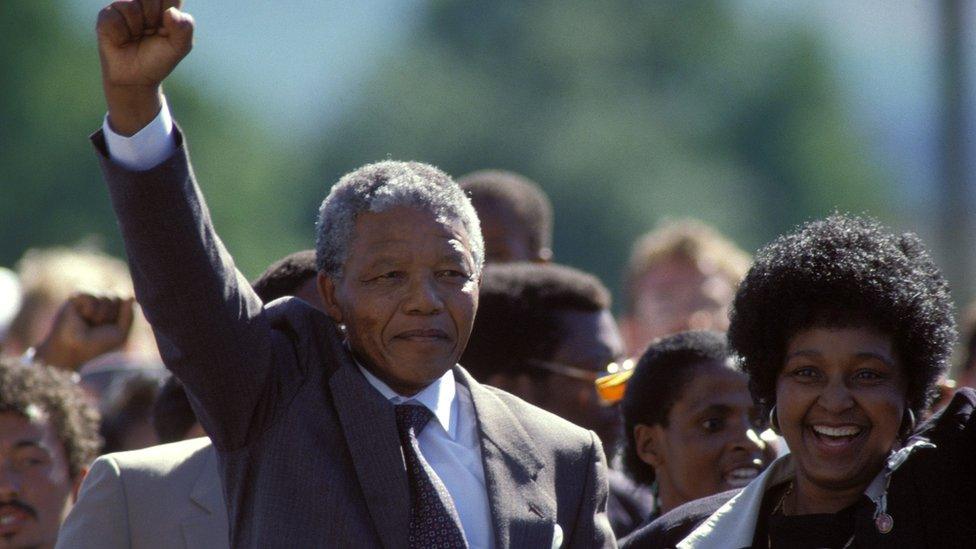
Nelson Mandela became a global icon for his fight against white-minority rule
Many Africans, immediately after receiving international accolades, attribute their success to a desire to prove something or the other about Africans.
Our humanity. Our ability. Our potential.
Like the hamster turning its wheel, generations of Africans seem destined to keep on keeping on with the task of proving to the world that we are not second-class beings.
Each generation of Africans, when they retire, hand over the baton of proving to the next generation.
Yet, no fresh accomplishment ever seems to finally satisfy the obsession. We must still continue to provide further proof.
'Blame-game'
The same platforms on which we shove yet more evidence in the world's face also come in handy to establish our place in the world as first-class victims - to amplify our moans and groans, announce trials and tribulations, point fingers and allocate blame.
With great pride, we reel out the historical crimes committed against Africa, our egos nourished by the juice squeezed out of our past sufferings.
Comments like President Macron's seduce us into provocation - unfailingly.
Any opportunity to insult, bully, or deride our former colonial rulers is a delight for us. Watching them squirm with guilt is our morsel of revenge.
As entertaining and rousing as the blame-game may be, it does not offer Africans a blueprint for how to improve our lives.
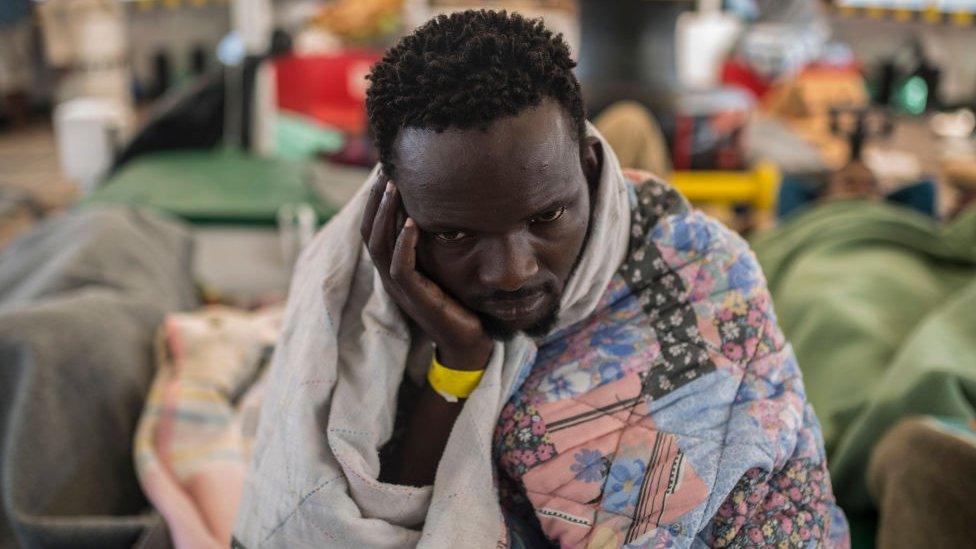
African migrants have been risking their lives to escape poverty and repression at home
It tells us nothing about who we are as individuals and as peoples, and how we might function better in this world as ourselves.
Blaming colonial miscalculations and neo-colonial manipulations for Africa's numerous conflicts, for example, will not help bring them to an end.
Neither will chastising the Western media for defective portrayals of Africa quell the wave of Africans daily risking life and dignity to escape their home countries.
So the African spokespersons, rabble-rousers, and social media commentators exit the stage after a good rant - perhaps making one or two Westerners feel guilty in the process - while things remain exactly the same across Africa.
The damaging subconscious message that this lashing out passes on to future generations of Africans, is that we are indeed inferior to our former colonial rulers, and to the Western world.
An African dream
As African-American academic Shelby Steele wrote: "Black anger flatters white power", adding that "They are the underdog's bite."
He says white people, "far more secure in their power, respond with a self-contained and tolerant silence that is itself a show of power."
"What greater power than that of non-response, the power to let a small enemy sizzle in his own juices, to even feel a little sad at his frustration just as one is also complimented by it."
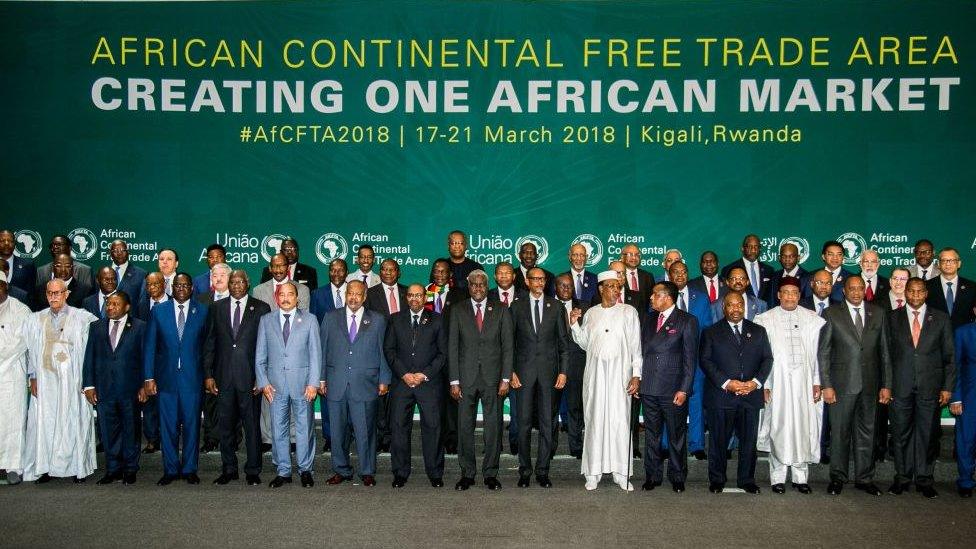
Africa need to finds its own internal solutions and stop blaming the West
I am one of a new generation of Africans who believe more in the power of dreams than in the power of memories; who are convinced that even though we may not be able to change yesterday, we can do something today that can change tomorrow.
Mr Macron may have got a bit carried away with his grand words, but constantly reacting to and creating a hullaballoo over every perceived slight simply reinforces the impression that Africans are the small fry in the relationship, the third-class citizens of the world.
I dream of an Africa where this kind of diversion has come to an end.

More Letters from Africa

Follow us on Twitter @BBCAfrica, external, on Facebook at BBC Africa, external or on Instagram at bbcafrica, external

- Published15 February 2018
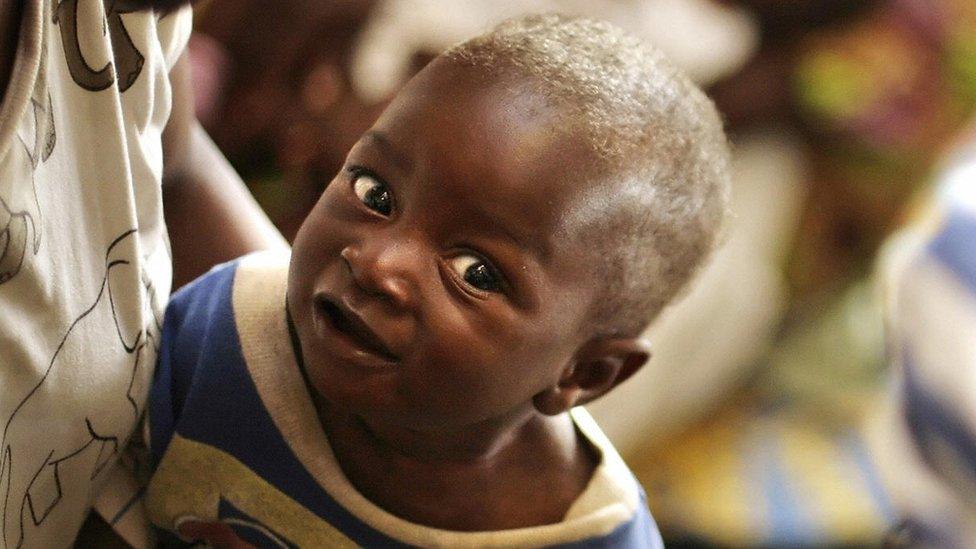
- Published3 June 2018
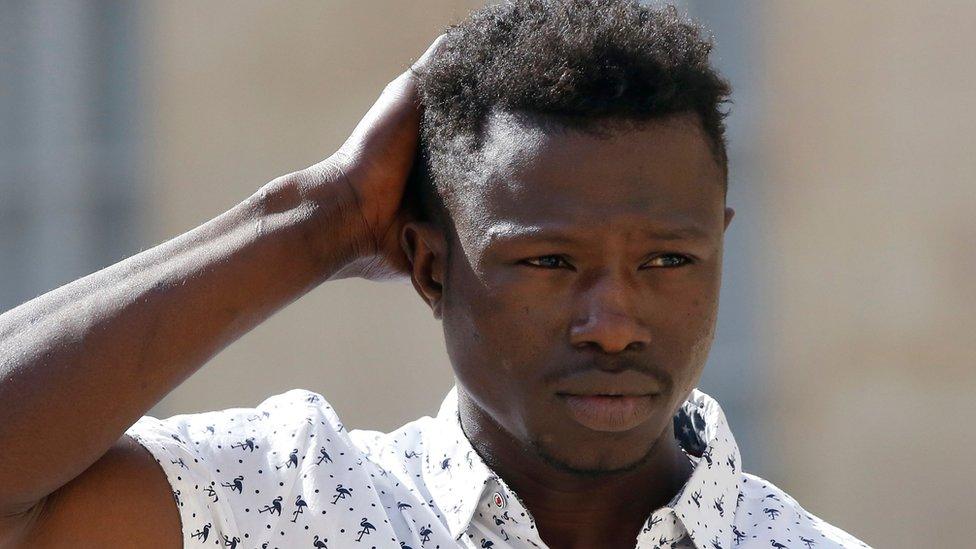
- Published22 April 2018
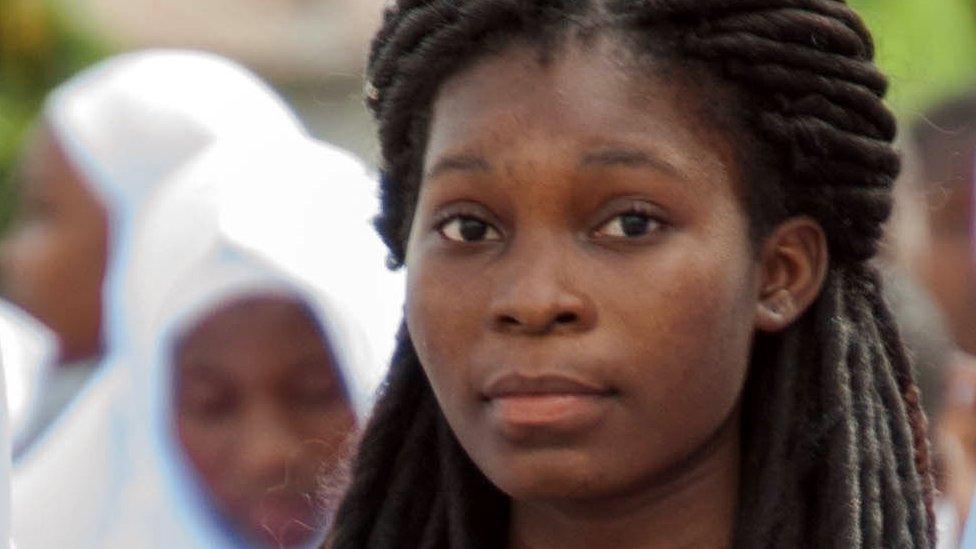
- Published31 May 2018
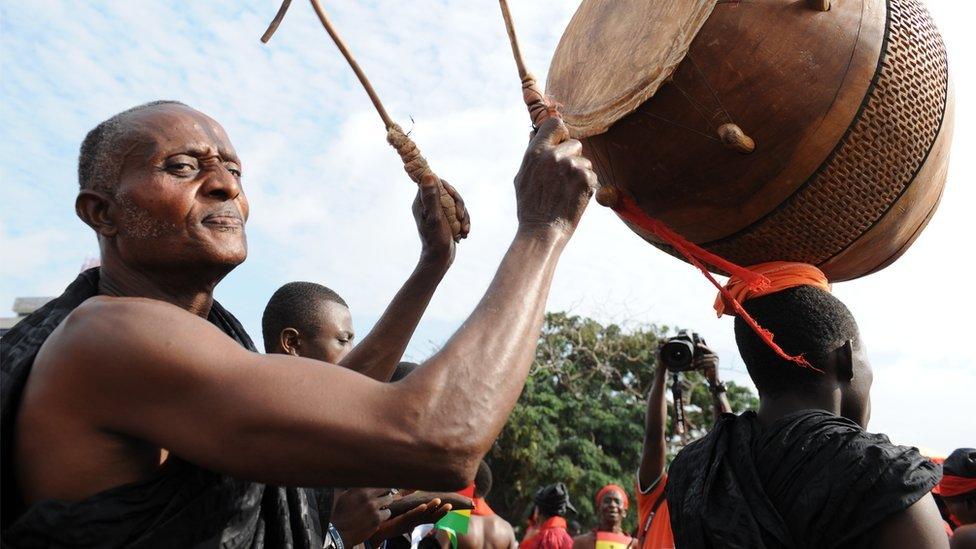
- Published9 April 2018
